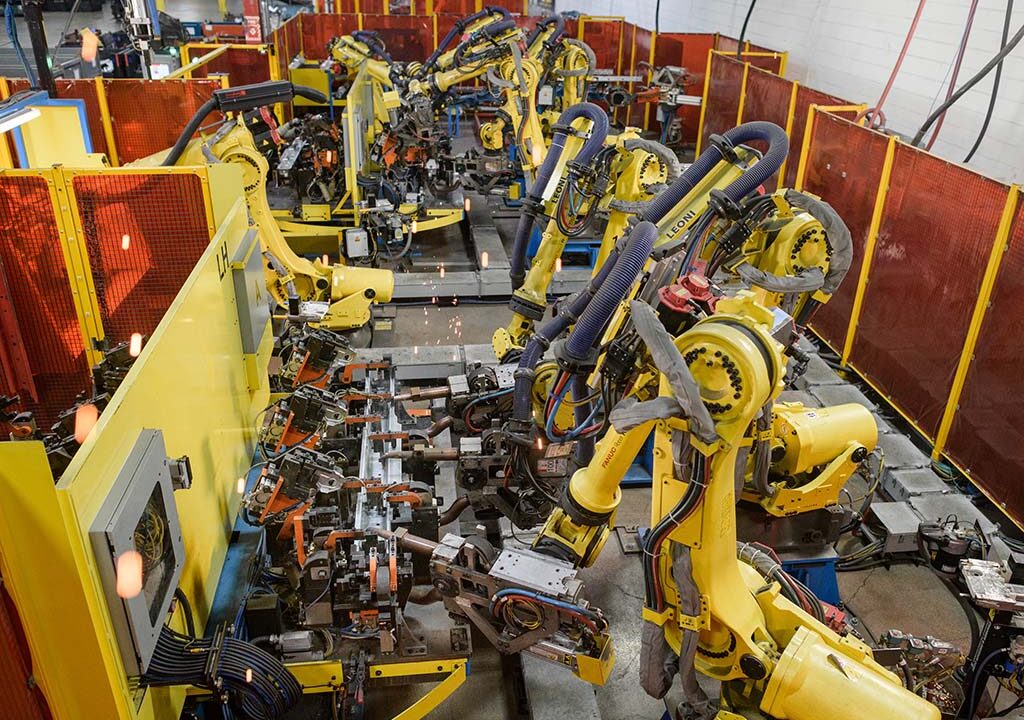
introduction
Flexible factories is a production process that is easily adaptable to variations in the type and amount of the product being created. In today’s rapidly changing market landscape, adaptability is key. Enter flexible factories—a revolutionary approach to manufacturing that prioritizes agility and efficiency. These innovative facilities are designed to meet the diverse needs of modern consumers, allowing manufacturers to pivot quickly in response to trends and demands. But what exactly makes a factory “flexible”? This blog post will explore the concept of flexible factories, diving into their systems, workforce requirements, strategies for implementation, and future possibilities. Whether you’re an industry veteran or just curious about manufacturing evolution, you’ll find valuable insights here!
Overview of Flexible Factories
Flexible factories represent a shift from traditional manufacturing methods. They prioritize versatility, enabling producers to adapt quickly to changing market demands.
These facilities utilize modular design principles, allowing for easy reconfiguration of production lines. This adaptability means manufacturers can switch between different products without extensive downtime.
Moreover, flexible factories often incorporate advanced technologies. Robotics and IoT devices play crucial roles in enhancing efficiency and communication across operations.
The goal is not just speed but also customization. Businesses can cater to specific customer preferences while optimizing resource use.
This approach fosters innovation within the supply chain, promoting collaboration among various stakeholders. By embracing flexibility, companies position themselves to thrive in an uncertain economic landscape where consumer needs evolve rapidly.
Understanding Flexible Manufacturing Systems
Flexible manufacturing systems (FMS) represent a significant evolution in production methodologies. These systems enable manufacturers to adapt to changing demands with remarkable efficiency.
At the heart of an FMS is its ability to switch between different products seamlessly. This flexibility allows factories to reduce downtime and maintain high levels of productivity, even when product specifications change frequently.
Automation plays a crucial role here. By integrating robotics and advanced software, manufacturers can reprogram machinery for various tasks without extensive reconfiguration. This adaptability is essential in today’s fast-paced market.
Moreover, FMS supports just-in-time production strategies. Manufacturers can respond swiftly to customer needs while minimizing inventory costs—a game-changer for many businesses striving for lean operation models.
Understanding these components helps companies harness the full potential of flexible factories, ensuring they remain competitive amid constant industry shifts and consumer expectations.
Importance of a Skilled Workforce in Flexible Factory Success
A skilled workforce is crucial for the success of flexible factories. These environments thrive on adaptability, and employees who possess diverse skill sets can navigate this complexity with ease.
Workers trained in various technologies can quickly switch between tasks, responding to shifting production demands. They are better equipped to handle the challenges that come with customization and rapid change.
Moreover, continuous learning is essential in these settings. Employees must stay updated on new manufacturing techniques and tools. This commitment enhances productivity and fosters innovation within the factory.
Effective communication among team members also plays a vital role. When workers collaborate seamlessly, they optimize processes and troubleshoot issues more efficiently.
In essence, investing in employee training not only boosts morale but significantly contributes to operational resilience. A well-rounded workforce ensures that flexible factories remain competitive in an ever-evolving market landscape.
Strategies for Achieving Flexibility
To achieve flexibility in factories, companies can adopt several strategies. First, modular production systems allow for quick changes in product designs or volumes. By using interchangeable components, manufacturers can easily adapt to market demands.
Second, cross-training employees is vital. A versatile workforce ensures that staff members can shift roles as needed. This adaptability minimizes downtime and enhances productivity.
Investing in advanced technologies also plays a crucial role. Implementing smart manufacturing tools enables real-time adjustments and data-driven decision-making. These tools help optimize workflows and resource allocation.
Fostering a culture of innovation encourages continuous improvement. When teams feel empowered to suggest new ideas or processes, they contribute significantly to overall flexibility in operations. Embracing these strategies positions factories to thrive amidst changing market conditions.
Implementing Automation for Flexible Manufacturing
Automation plays a pivotal role in the evolution of flexible factories. By integrating advanced technologies, manufacturers can enhance efficiency and adaptability.
Robotic systems are at the forefront of this revolution. They can swiftly switch between tasks, reducing downtime and increasing production speed. This ability to pivot quickly is crucial for meeting varying customer demands.
Moreover, automation fosters precision. Machines equipped with AI algorithms consistently produce high-quality outputs while minimizing errors. This reliability builds trust with clients and boosts overall productivity.
Data analytics also enhances decision-making processes within flexible manufacturing environments. Real-time insights allow for quick adjustments based on market needs or operational challenges.
Embracing automation creates opportunities for innovation as well. It frees skilled workers from repetitive tasks, enabling them to focus on more complex problem-solving activities that drive growth and improvement in manufacturing practices.
Future Trends in Flexible Manufacturing
The landscape of flexible factories is evolving rapidly. As technology advances, we can expect to see an even greater emphasis on customization and speed. More manufacturers are likely to adopt advanced robotics that not only automate processes but also learn from them.
With the integration of artificial intelligence, these systems will adapt in real-time to changing demands, making production more efficient. Data analytics will play a crucial role as well; by analyzing trends and consumer behavior, factories can better anticipate needs and adjust their output accordingly.
Sustainability will also be a significant focus moving forward. Flexible factories will seek ways to minimize waste and reduce energy consumption while maintaining productivity levels. This shift towards eco-friendly practices aligns with global initiatives aimed at sustainable development.
Collaboration between human workers and machines is set to increase too. The need for skilled labor won’t diminish; rather, it will evolve into roles that require managing complex systems rather than performing repetitive tasks.
As we look ahead, flexible manufacturing promises not just adaptation but transformation across industries—reshaping how products are made and delivered in our ever-changing world.
For More Click Here














